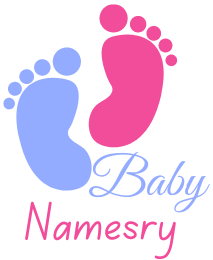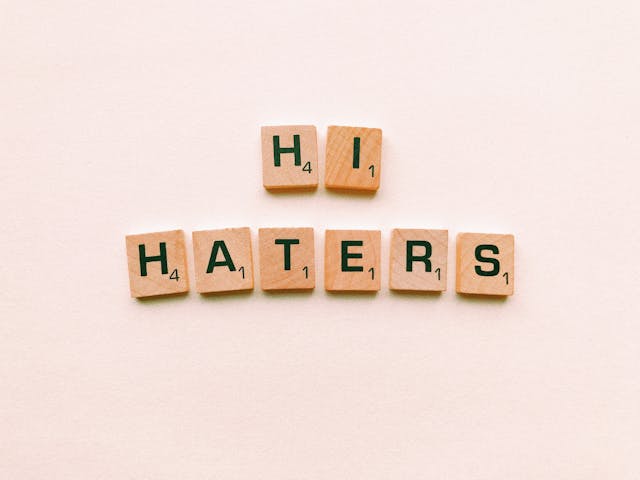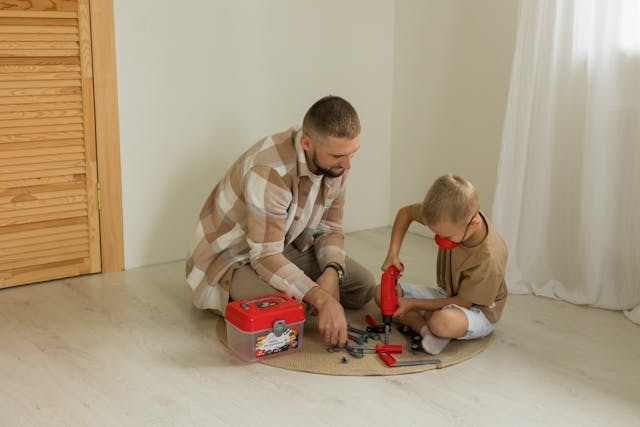10 Signs You Are an Empath in 2025

Have you ever walked into a room and instantly felt the energy shift—without anyone saying a word? Or found yourself feeling deeply drained after talking to someone, even though nothing dramatic was said? If so, you might be more than just compassionate. You might be an empath.
Being an empath goes beyond being kind or sensitive. Empaths don’t just understand how others feel—they absorb it. They carry emotional energy in a way that’s intuitive, intense, and often unspoken.
If you’ve ever felt “too sensitive” or emotionally overwhelmed for reasons you couldn’t explain, this article might just feel like home. Here are 10 signs you may be an empath—and why it’s a powerful, beautiful gift (even when it feels heavy).
You Absorb the Emotions of Others Like a Sponge
Empaths don’t just sense how someone feels—they feel it themselves. If someone near you is anxious, you might suddenly feel anxious too. If a friend is heartbroken, your chest aches like it’s your own pain.
You often can’t tell where their emotions end and yours begin. And even when people try to hide their feelings, you still pick up on the undercurrent beneath their words.
This emotional absorption can be overwhelming, especially in crowded or high-stress environments. But it’s also what makes you incredibly understanding, compassionate, and supportive.
You don’t need explanations—you just know.
Don’t Miss: 10 Surprising Benefits of Getting Married Before 30
You’re Easily Overstimulated in Crowds or Chaotic Places
Busy environments can leave you mentally and emotionally drained—even if you’re not interacting with anyone. As an empath, your nervous system is more sensitive to energy, noise, and emotional intensity.
Crowds, loud music, constant talking, or even open-plan offices can feel like emotional overload. It’s not that you’re antisocial—you simply need time alone to recharge and return to yourself.
While others may thrive in busy settings, you often find peace in quiet corners, nature, or solo activities. These moments aren’t escape—they’re recovery.
You’re not weak for needing space—you’re wired to feel deeply, and that takes energy.
You Can Sense Lies, Tension, or Unspoken Emotions Instantly
Empaths are highly intuitive. You can tell when someone’s not being genuine—even if they’re smiling. You feel the tension behind polite words, the sadness behind a “I’m fine,” and the shift in energy before anything is said.
This ability can be both a blessing and a burden. It makes you a human truth detector, but it also means you often see through people’s masks before they’re ready to take them off.
You often hear, “How did you know?” or “You read me like a book.”
It’s not magic. It’s empathy that goes beyond logic and into emotional attunement.
You read energy like other people read expressions.
Read More: 10 Psychology Facts About Quiet People
You Attract People Who Need Healing or Support

You may find that people open up to you quickly—even strangers. They sense your warmth and nonjudgmental energy, and they’re drawn to it. You’re often the friend, coworker, or partner people come to when they’re hurting.
Empaths often become emotional anchors for others, offering deep listening, comfort, and wisdom. But this can also leave you feeling used, overwhelmed, or emotionally depleted.
It’s important to learn where support ends and self-sacrifice begins. You can care deeply without becoming someone’s emotional dumping ground.
You’re not here to fix everyone. You’re here to feel—but with boundaries.
You Experience Physical Symptoms From Emotional Energy
If someone close to you is in pain, anxious, or emotionally distressed, you might physically feel it—tightness in your chest, headaches, stomach tension, or sudden fatigue.
Your body becomes a channel for unspoken energy, especially if you haven’t learned how to separate what’s yours from what’s not.
This mind-body connection can be powerful—but exhausting. That’s why empaths often need rest, grounding, and healing practices to stay balanced.
Feeling everything isn’t weakness—it’s emotional sensitivity turned up high. Learn how to regulate, and it becomes your strength.
You Struggle to Watch Violence, Cruelty, or Injustice
Movies with suffering? News reports filled with tragedy? Cruelty in real life? For empaths, these moments are hard to “tune out.” You don’t just see them—you feel them.
Empaths often cry during movies, avoid violent shows, or feel emotionally wrecked after reading about injustice. You don’t have emotional detachment from pain—especially when it’s unnecessary or unfair.
You feel the world’s weight as if it’s your own, which makes you deeply compassionate—but also highly susceptible to emotional burnout.
Your heart’s not soft—it’s strong. It just refuses to harden.
You’re Highly Affected by Nature, Music, or Beauty
On the flip side, empaths experience beauty with equal depth. A walk in nature, a moving piece of music, or a random act of kindness can stir something deep within you.
You may feel awe, peace, or even tears in the presence of beauty. It’s not just pleasant—it’s transformational.
Empaths have heightened emotional responses not only to people, but to life itself. Your soul responds to harmony, connection, and meaning in powerful ways.
The world doesn’t just pass by—you experience it deeply, with your whole being.
You Need More Time Alone Than Most People
You’re not antisocial—you’re self-regulating. Empaths need solitude to return to themselves after absorbing so much from the outside world. Time alone isn’t avoidance—it’s maintenance.
Without it, you may feel lost, emotionally foggy, or overstimulated. Alone time helps you sort out what’s yours versus what you’ve picked up from others.
Reading, journaling, quiet walks, or even just silence can restore your clarity. It’s how you recharge your emotional battery—and protect your mental health.
You don’t need to explain your alone time. It’s not selfish. It’s sacred.
You May Like: How to Rebuild Trust After Betrayal: 10 Proven Steps That Actually Work in 2025
You Feel a Strong Connection to Animals, Art, or Spirituality
Empaths often connect deeply with non-verbal forms of energy—like animals, art, music, or spiritual practices. These spaces feel safe, intuitive, and emotionally rich without the social noise.
You may feel more peace with a pet than a group of people. Or you may find yourself drawn to creative expression or meditation as a way to process what you feel.
This isn’t random. It’s your nervous system gravitating toward resonance, safety, and depth. You’re connecting with life in quieter, but more profound, ways.
You don’t need crowds to feel alive—you just need truth, beauty, and meaning.
You Often Feel “Too Much” for the World
Many empaths grow up being told they’re too sensitive, too emotional, too serious. The truth? You’re not too anything—you just feel things that others aren’t tuned into.
This can lead to emotional self-doubt. You wonder if you’re broken, dramatic, or weak. But in reality, you’re wired differently. Your emotional depth is a gift—but only if you learn how to honor it instead of suppressing it.
Empaths often have to unlearn the shame of their sensitivity. Once you do, your empathy becomes a superpower—guiding your choices, deepening your relationships, and grounding your purpose.
You’re not too much. You’re exactly enough for the kind of healing this world needs.
Final Thoughts: Being an Empath Is a Gift—With Boundaries
Being an empath isn’t easy—but it’s powerful. You’re wired to connect, to feel, to understand in ways most people don’t. But that gift requires boundaries, self-awareness, and rest.
You are not here to carry everyone else’s pain. You’re here to witness, to support—but also to protect your own energy and joy.
When you learn to embrace your empathy without abandoning yourself, you become one of the most grounded, compassionate, and powerful people in any room.
Frequently Asked Questions (FAQs)
- Is being an empath the same as being sensitive?
Not exactly. All empaths are sensitive, but not all sensitive people are empaths. Empaths absorb emotions and energy—often without meaning to.
- Can empaths set boundaries without becoming cold?
Yes. In fact, empaths need boundaries to stay emotionally healthy. You can still care deeply while protecting your peace.
- How do I stop feeling drained all the time as an empath?
Start with awareness. Practice energy-clearing routines like solitude, nature walks, journaling, or meditation. Learn to say “no” when you’re at capacity.
- Do empaths make good leaders?
Absolutely. Empaths lead with emotional intelligence, intuition, and deep care. With boundaries in place, they can create powerful impact in any field.
- Can I stop being an empath?
No—but you can manage it better. Being an empath is a part of who you are. The goal is not to stop feeling—it’s to feel well.






